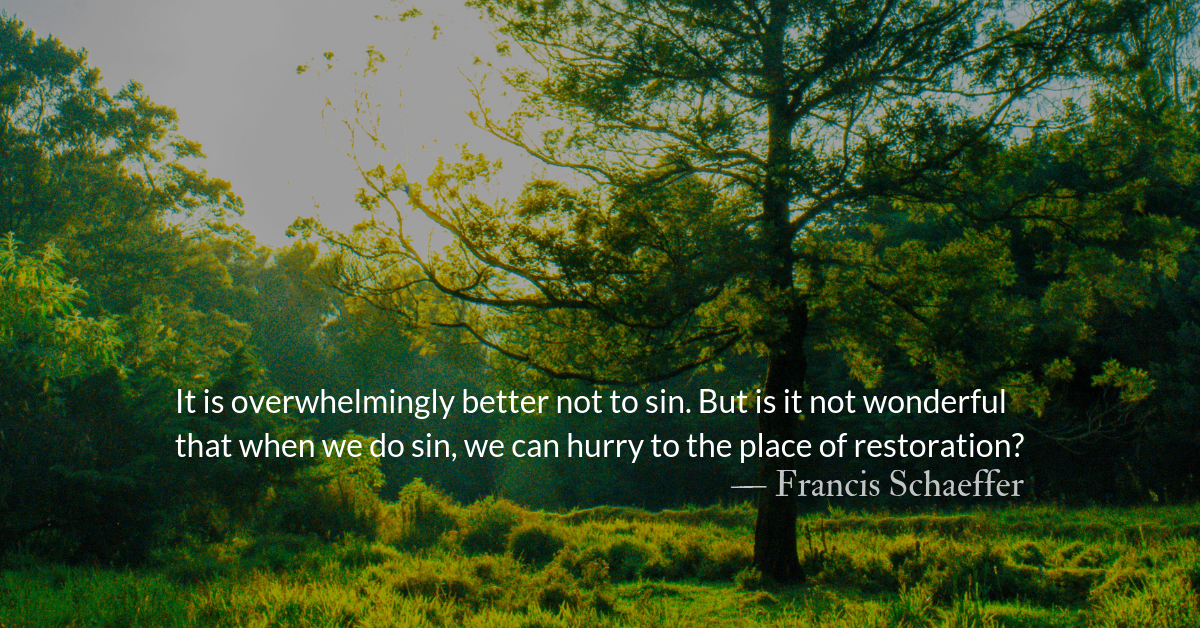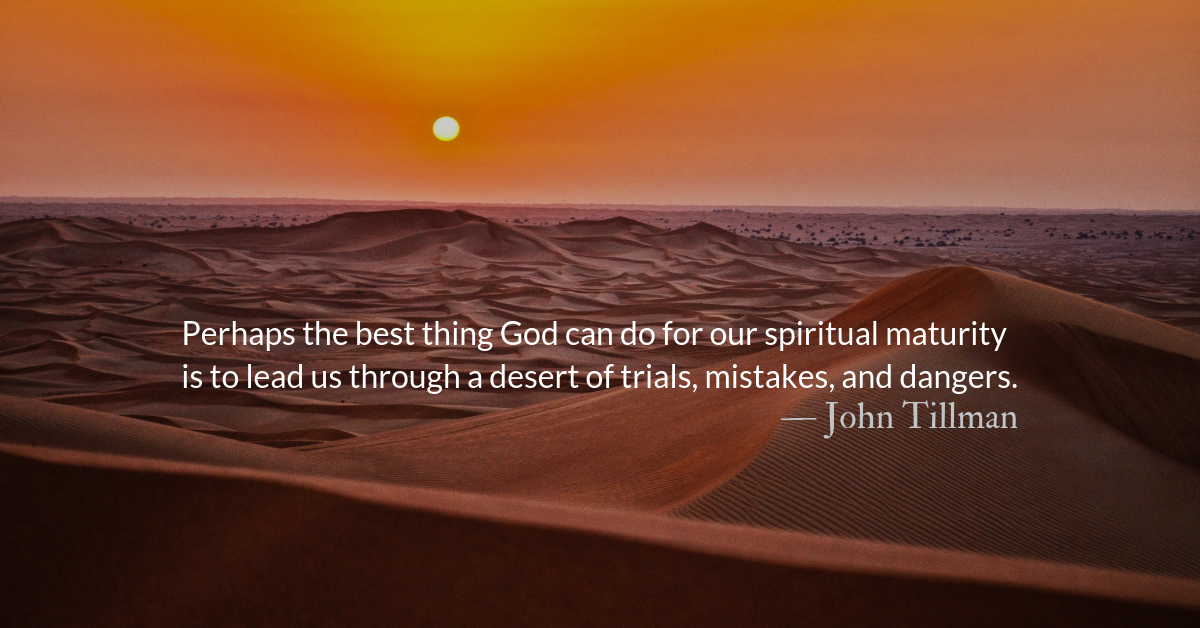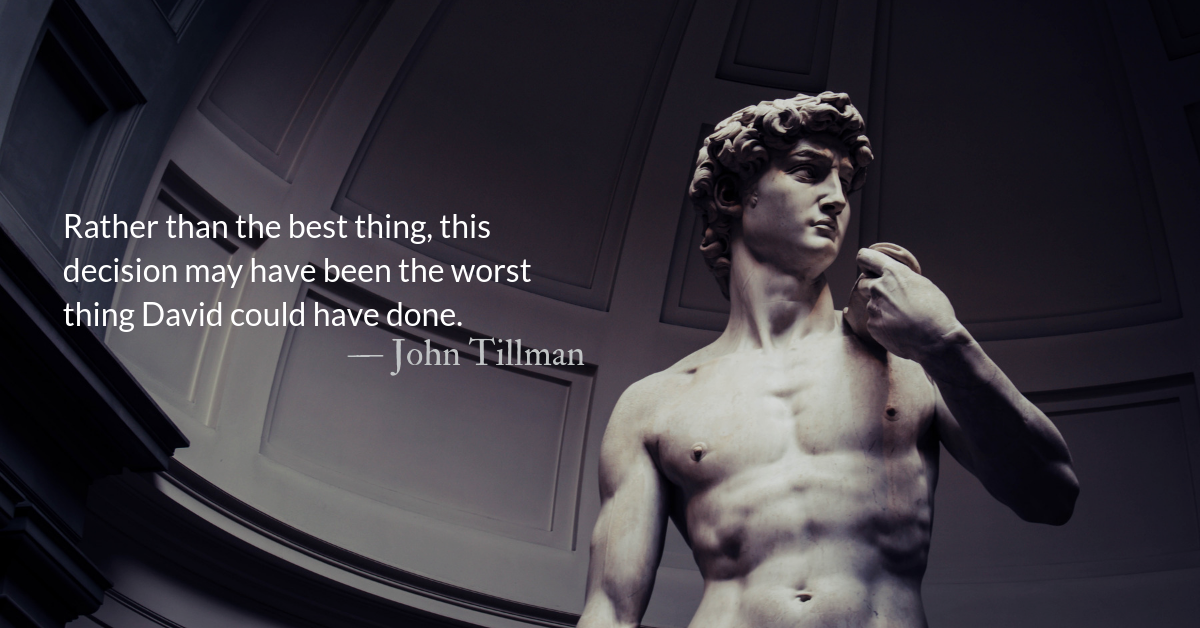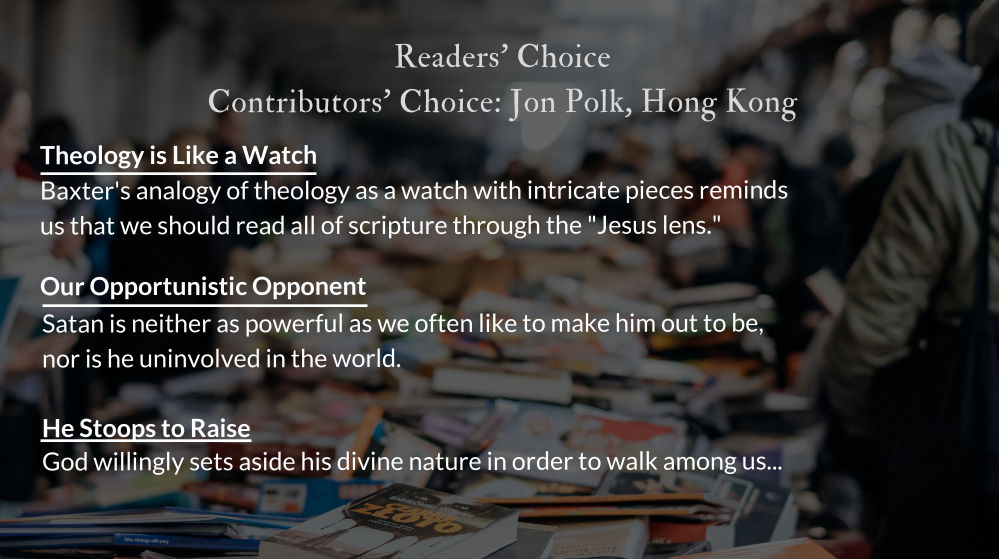Scripture Focus: 1 Corinthians 11.31-32
But if we were more discerning with regard to ourselves, we would not come under such judgment. Nevertheless, when we are judged in this way by the Lord, we are being disciplined so that we will not be finally condemned with the world.
Reflection: Chastened Towards Freedom
By John Tillman
Does Paul teach perfectionism? Must we attain holiness by our self-will? In his book, True Spirituality, Francis Schaeffer addresses this confusion:
“If I lay hold upon the blood of Christ in faith, reality rests here: not in trying to live as though the Bible teaches perfectionism. That is no basis for reality; that is only a basis either for subterfuge or despair. But there is a reality here: the reality of sins forgiven…This is the reality of restored relationship.”
Schaeffer uses the word “chastening” in his writing, taking it from the New King James translation from which he taught:
“The chastening of a child of God does not have a penal aspect. That was finished on the cross. There is no double jeopardy when the holy God is the Judge. Our guilt is gone, once and forever. Therefore if we judge ourselves, we are not chastened.”
There are multiple words here. The way we are to “judge” ourselves is diakrinō, meaning to separate, to make a distinction, or to discern. The “judgment” (krinō) which believers may avoid is that which means to be sentenced or punished. Instead, we are “chastened” (paidĕuō), which means trained, educated, or disciplined.
We are not taught perfectionism in Paul, but rather confession and submission to the Holy Spirit:
“This is what Paul was urging upon us. It is overwhelmingly better not to sin. But is it not wonderful that when we do sin, we can hurry to the place of restoration?”
Sin does more than separate us from God. We are isolated, marooned and abandoned by our selfishness.
“Man is first of all separated from God, then from himself, and finally from his fellow men and from nature. The blood of the Lord Jesus Christ will give an absolute and perfect restoration of all these things when Jesus comes. But in the present life, there is to be a substantial healing, including the results of the separation between a man and himself. This is the first step towards freedom in the present life from the results of the bonds of sin.”
May we “judge” ourselves with sober judgment, knowing our Judge is Christ, and yearning to yield to any chastening of his Spirit that may come.
May the Spirit chasten us towards freedom.
*Quotations from, True Spirituality by Francis A. Schaeffer.
Divine Hours Prayer: The Refrain for the Morning Lessons
It is not the healthy who need the doctor, but the sick…And indeed I did not come to call the virtuous but sinners. — Matthew 9.12-13
– From The Divine Hours: Prayers for Summertime by Phyllis Tickle.
Today’s Readings
1 Samuel 31 (Listen – 2:03)
1 Corinthians 11 (Listen – 4:20)
This Weekend’s Readings
2 Samuel 1 (Listen – 3:54), 1 Corinthians 12 (Listen – 4:25)
2 Samuel 2 (Listen – 5:07), 1 Corinthians 13 (Listen – 2:23)
Thank You!
Thank you to our donors who support our readers by making it possible to continue The Park Forum devotionals. This year, The Park Forum audiences opened 200,000 free, and ad-free, devotional content. Follow this link to join our donors with a one-time or a monthly gift.
Read more about Prayer for Older Brothers
One son was humiliated by his own scandalous behavior.
One son was humiliated by his father’s scandalous grace.
Read more about We Confess
The gospel is better served by time spent confessing our own sins than time spent accusing the world of theirs.










